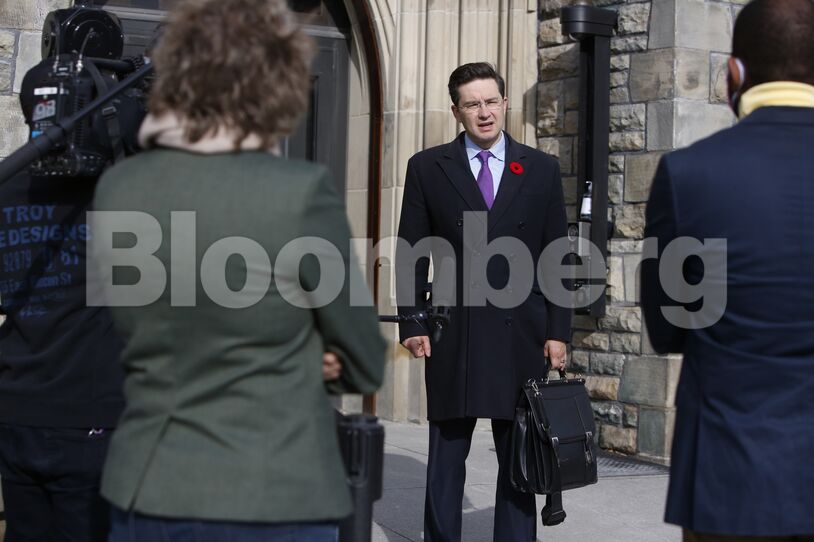Ostensibly, the two-hour meeting was to talk about the transition to a low-carbon economy at a hearing that included other expert witnesses. But instead Carney was aggressively hounded by Pierre Poilievre, a high-profile lawmaker for the opposition Conservatives, who accused him of “hypocritical window dressing” and being a Davos elite.
In five separate rounds, Poilievre pressed Carney — who ran the Bank of England through Brexit after serving as governor of the Bank of Canada — on the mistreatment of Uighur Muslims, subsidies his company receives for producing renewable energy, his position on Canadian pipelines, and even the number of fatal encounters between birds and Brookfield’s windmills.
The exchanges between Poilievre and Carney included the following:
- Will Brookfield forfeit subsidies from producing renewable energy in Ontario? (Carney said contracts are locked in and targeted energy policy isn’t the right tool to address poverty.)
- Does he believe Trudeau’s fiscal plan is creating a structural deficits? (“In my judgment it is on a sustainable fiscal path.”)
- Has he been advising government ministers on climate finance and has he contacted the lobbying commissioner to determine whether he is following rules? (“I don’t lobby, period.”)
- Does he believe the Chinese government is perpetrating genocide against the Uighurs? (“I’m deeply concerned about the situation.”)
- Why is his company expanding in China given the nation’s poor climate record? (“You go to where the emissions are and you convert dirty activities to green activities.”)
- Did Carney support Trudeau’s decision to veto Northern Gateway pipeline? (He did.)
- Does he support Brookfield’s decision to invest in pipelines in other countries? Is it a double standard? (Carney said it’s not.)
- Whether there was anything he believes the government has done wrong? (“I think more can be done.”)
- How many birds have Brookfield windmills killed? (“I have no idea.”)
Poilievre is the most prominent agitator in the Conservative caucus. In October, he warned Bank of Canada Governor Tiff Macklem against financing Trudeau’s spending plans beyond immediate pandemic emergency measures.
Carney was composed through most of the questions, but at one point returned the barbs by accusing Poilievre of being a climate-change denier.
The back-and-forth between the two men prompted a flurry of points of order from other members of the committee to debate whether the questions had any relevancy to the subject.
“I came here with a series of proposals. You have asked nothing about any of those proposals, you’ve betrayed no interest in any of the issues that will actually create a more sustainable future for other Canadians. You betrayed no interest in any of the comments of the experts and the entrepreneurs that came to this committee,” Carney said. “We need more focus on solutions, Mr. Poilievre.”
Carney did get other questions that were more focused on specific proposals to facilitate a green transition for the Canadian economy.
“I’m absolutely committed to first recognizing there is an energy transition; second, recognizing that by doing so we can create huge jobs huge opportunities across the energy sector; thirdly, that that isn’t just going to happen,” he said.
Share This:





 CDN NEWS |
CDN NEWS |  US NEWS
US NEWS 

































